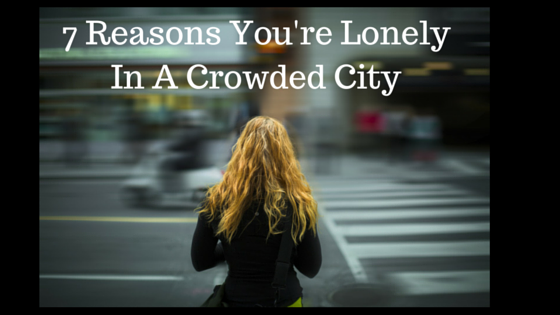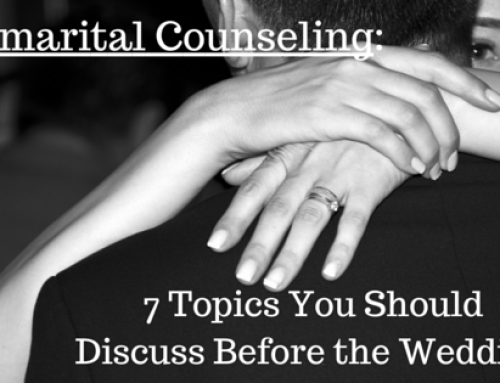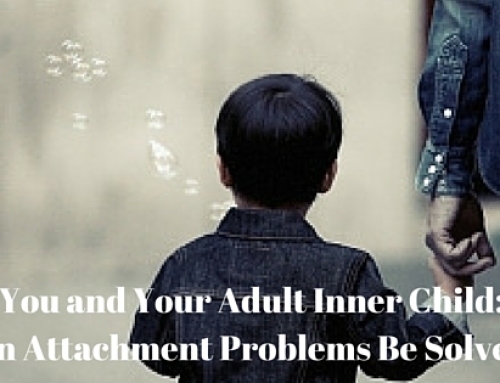“People can freely ignore you in the city; they can assume they don’t have any responsibility for you. When there are fewer people, (…) they begin assuming some kind of responsibility, simply because you naturally do the same.” — Mercedes Lackey, author of Winds of Change
No matter how you try, you can’t shake the lonely and you’re not sure why.
You just know that feeling so lost in the crowd is increasingly painful and you’re ready for a change.
To understand why city living – even in a smaller-sized city – feels more solitary than you can stand, consider the following.
7 common reasons for urban loneliness:
- City life frowns on deliberate touch. Tapping, jostling, and bumping may be part of navigating your daily life. But deliberate efforts to communicate with touch is not the urban way. Connecting through touch is a significant prevention of loneliness and detachment. Without it, we feel less grounded and connected.
- City life says, “Keep your head down, and your eyes on your phone.” You can feasibly get less risky, more immediate social gratification on a glowing screen than in the bustling crowd around you. You can also miss innumerable opportunities to lock eyes with, smile at, or speak to someone who might reassure and reaffirm your place in the real world.
- City life often has no “center.” There are wonderful opportunities for outings, events, and freedom in the city. Still, you may find that the faces change too often and the atmosphere is too transient to support the continuity of community. The sense of belonging is hard to come by in many city dwellers’ lives. So too, is the feeling of being recognized and sought out.
- City life is often a young, hungry person’s scene. Ambitious movers and shakers are on the way up. Loneliness and aging are valid concerns in the city. You may wonder – if you stop running with the pack, or eventually slow down over time – will you be forgotten in the city’s cracks?
- City life can kill connection with the commute. We have to get somewhere. Fast. And on the way there, we encapsulate ourselves in preparation, irritation, or distraction. Travelling around the city may be a tense affair, during which no one seems to notice anyone, let alone take the opportunity to engage after completing the weary process of getting to where they’re going.
- City life is like hiding in plain sight. There’s so much to see that we start to cope by narrowing our field of vision and limit who sees us. If you have struggled in relationships, you may immerse yourself in a city, knowing no one expects you to engage. The problem with that? No one cares when you don’t.
- City life supports superficial ways to “keep company” rather than relate compassionately. The plight of the unfortunate, poor, and unseen are extreme examples of this. Being lonely may stem from being seen only as a cog in the city wheel, not a complex member with something to offer.
Marilyn French, writer of The Women’s Room said, “… loneliness is not a longing for company, it is a longing for kind. And kind means people who can see you for who you are, and that means they have enough intelligence and sensitivity and patience to do that. It also means they can accept you, because we don’t see what we can’t accept, we blot it out, we jam it hastily in one stereotypic box or another. We don’t want to look at something that might shake up the mental order we’ve so carefully erected…”
Break the cycle of sadness and solitude in the city.
Schedule time with a counselor who can help you take steps toward the relationships you desire.
For more information on Adult Relationship Counseling click here.








Leave A Comment